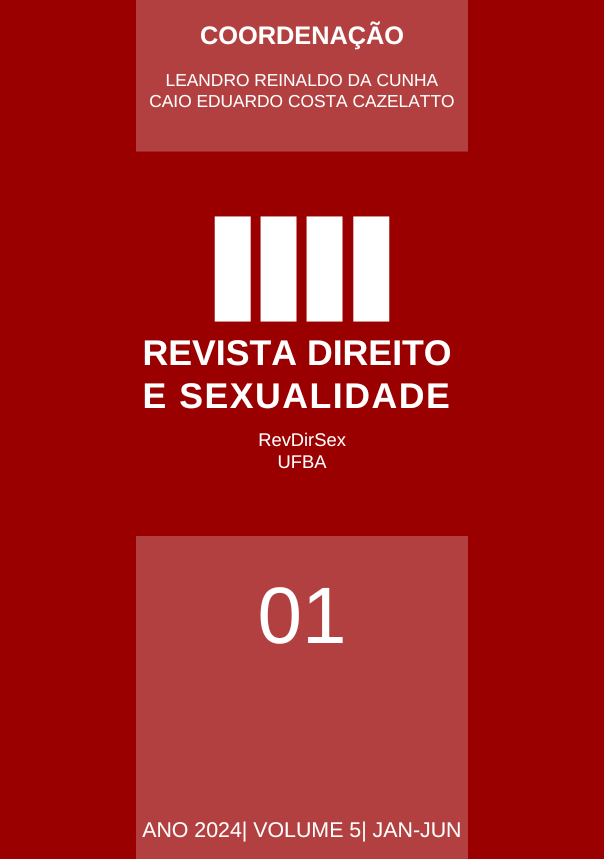TEORIA DA INTERSECCIONALIDADE E FEMINISMO CONTEMPORÂNEO
UMA ANÁLISE CRÍTICA DAS COMPLEXAS EXPERIÊNCIAS DAS MULHERES
DOI:
https://doi.org/10.9771/rds.v5i1.57686Keywords:
Desigualdades sociais, Feminismo contemporâneo, Interseccionalidade, Movimento feministaAbstract
This article addresses the theory of intersectionality as a fundamental tool to understand the complex experiences of women in the context of contemporary feminism. It acknowledges that women's experiences are profoundly influenced by multiple factors such as race, social class, and sexual orientation, and argues that intersectionality is essential for a critical analysis of gender inequalities. The central research problem lies in the need to understand how intersectional identities shape women's experiences and how this understanding can strengthen the feminist movement. The hypothesis is that the effective application of intersectionality offers a more precise understanding of the complexities of women's experiences, enabling more effective strategies in the pursuit of gender equality. Specific objectives include exploring the theory of intersectionality and its conceptual foundations, analyzing the criticisms and challenges faced in applying intersectionality in feminism, investigating case studies and research that demonstrate the various dimensions of women's experiences from an intersectional perspective, and evaluating the political and activist impact of this approach. The research's relevance lies in its contribution to understanding the complex interactions between gender, race, social class, sexual orientation, and other factors that influence women's experiences. In addition to enriching academic discourse, the study has important practical implications for feminist movements and gender equality public policies, aiming for more inclusive and effective strategies in the pursuit of gender equality.
Downloads
References
ALABAU, Irene. Feminismo interseccional: o que é, tipos, autoras e frases. Psicologia online. 2020. Disponível em: https://br.psicologia-online.com/feminismo-interseccional-o-que-e-tipos-autoras-e-frases-359.html. Acesso em 27 de set. de 2023.
BRAH, Avtar; PHOENIX, Ann. Ain’t I A Woman? Revisiting intersectionality. Journal
of International Women’s Studies Vol 5 (3), 2004.
COMBAHEE RIVER COLLECTIVE. The Combahee River Collective Statement. Boston: Kitchen Table: Women of Color Press, 1986.
COLLINS, Patricia Hill. Intersectionality's definitional dilemmas. Annual Review of Sociology. Vol. 41:1-20. 2015.
CRENSHAW, Kimberlé. Demarginalizing the intersection of race and sex: a black feminist critique of antidiscrimination doctrine, feminist theory and antiracist politics. The University of Chicago Legal Forum, n. 140, p. 139-167, 1989.
CRENSHAW, Kimberlé. Documento para o encontro de especialistas em aspectos da discriminação racial relativos ao gênero. Revista Estudos Feministas, 10 (1): 171-188, 2002.
DAVIS, Kathy. Intersectionality as buzzword, a sociology of science perspective on what makes a feminist theory successful. Feminist Theory, vol.9, 2008, p. 67-85.
HENNING, Carlos Eduardo. Interseccionalidade e pensamento feminista: As contribuições históricas e os debates contemporâneos acerca do entrelaçamento de marcadores sociais da diferença. Mediações, Londrina, v. 20 n. 2, p. 97-128, Jul./Dez. 2015.
hooks, bell. Feminist theory: from margin to center. Boston: South End Press, 1984.
KYRILLOS, Gabriela M. Uma análise crítica sobre os antecedentes da interseccionalidade. Revista Estudos Feministas, Florianópolis, v. 28, n. 1, e 56509, 2020.
LORDE, Audre. The collected poems of Audre Lorde. W.W. Norton and Company Inc., 1997.
McCALL, Leslie. The complexity of intersectionality. Signs: Journal of Women in
Culture and Society. Vol. 30, n.3, 2005.
PARKER J, SAMANTRAI R. 2010. Interdisciplinarity and social justice: an introduction. Revisioning Academic Accountability. Albany: SUNY Press. 2010.
PERRY, Keisha-Khan Y. O legado político do Manifesto do Coletivo Combahee River. Portal Geledés. 2020. Disponível em: https://www.geledes.org.br/o-legado-politico-do-manifesto-do-coletivo-combahee-river/. Acesso em: 27 de set. de 2023.
TIBURI, Marcia. Feminismo em comum. Rio de Janeiro: Rosa dos tempos, 2018.
TOMLINSON B.To tell the truth and not get trapped: desire, distance, and intersectionality at the scene of argument. Signs 38: 993 –1017. 2013.
Downloads
Published
How to Cite
Issue
Section
License
Copyright (c) 2024 Authors

This work is licensed under a Creative Commons Attribution 4.0 International License.
- This Journal reserves the right to direct normative, spelling and grammatical alterations in original works, with the intention of maintaining the standard worship of the language, respecting the authors' style.
- The exclusive opinions by the authors are their sole responsibility.
- The licensing rights used by the journal are the Creative Commons Attribution 4.0 International License.
- Copyright belongs exclusively to the authors. Sharing (copying and distributing the material in any medium or format) and adaptation (remixing, transforming and re-adapting the original work for all purposes, including commercial) are permitted, provided that due credit is given for the initial publication in this journal.
- Authors are permitted and encouraged to publish and distribute their work online after publication, as this can increase the impact and citation of the published work (See The Effect of Open Access).













